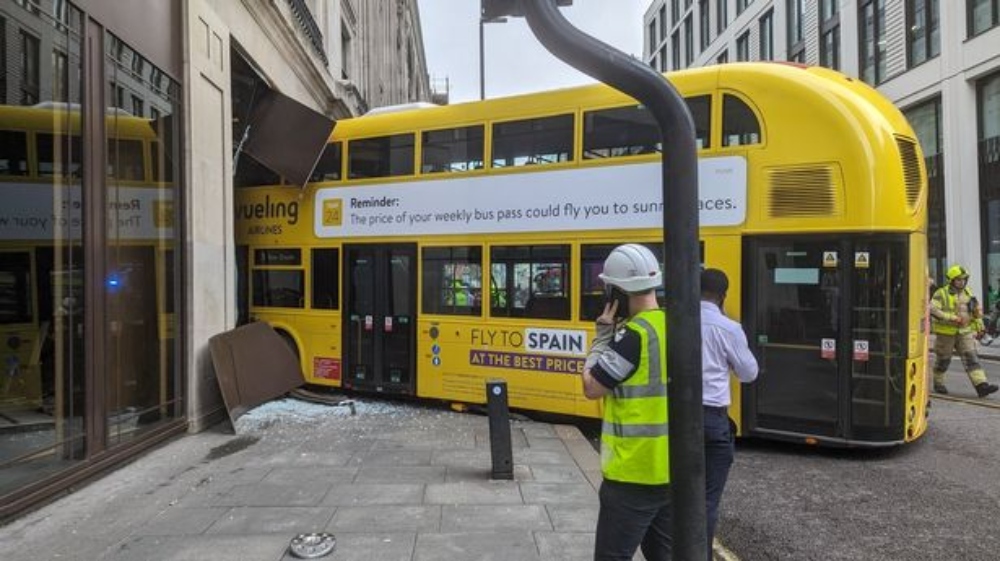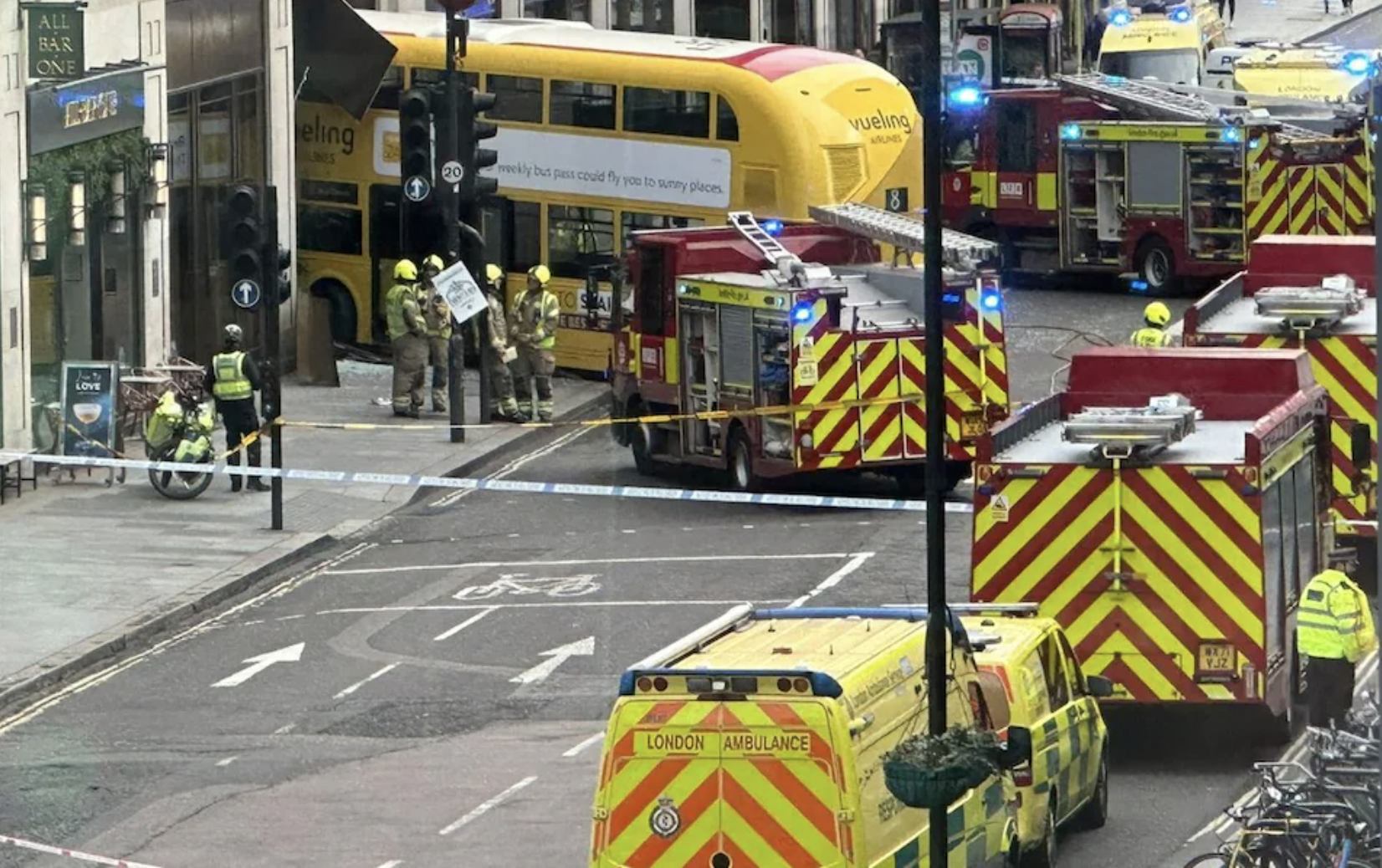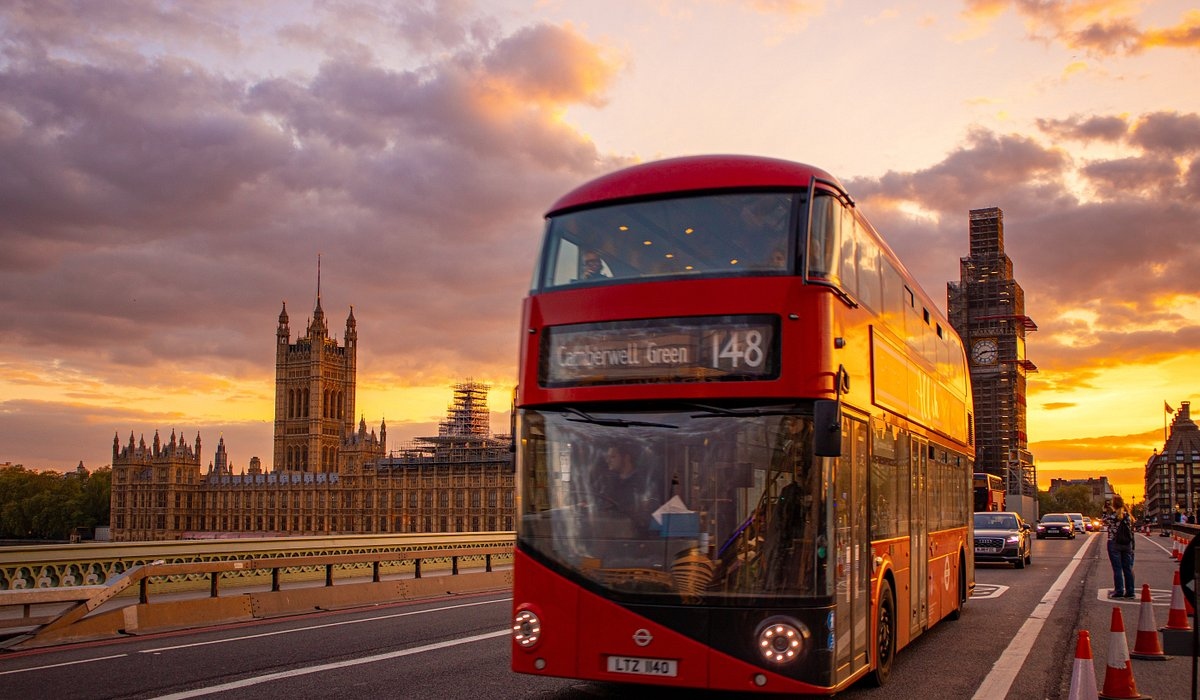Comments
- No comments found

A double-decker bus has crashed into a branch of All Bar One on New Oxford Street in central London.
The incident occurred shortly after 10 am, and fortunately, there were no reported injuries. The yellow-colored bus collided with the building, prompting the response of emergency services.

The London Fire Brigade reported that a man had left the bus before their arrival and was being assessed by the London Ambulance Service. The road was closed, with police officers and firefighters on the scene.
A spokesperson for the London Fire Brigade stated, "Firefighters are at the scene of a road traffic collision on New Oxford Street in Soho. One double-decker bus collided into the front of a building. One man left the bus before the Brigade’s arrival and is being assessed on the scene by London Ambulance Service crews. There are currently no further reports of injuries. Road closures are in place, and people are advised to avoid the area at this time. The Brigade was called at 10:11 am. Two fire engines and two fire and rescue units from Soho, Euston, and Battersea fire stations are at the scene."
The Metropolitan Police received the call at 10:16 am and dispatched officers to the scene. Fortunately, there were no reports of injuries.
The incident has caused disruptions in the area, with road closures in effect. Authorities are urging people to steer clear of the affected area.

Preventing accidents like the recent double-decker bus crash in central London requires a combination of careful driving, adherence to safety protocols, and ongoing training. Here are some suggestions for bus drivers to help prevent such incidents:
1. Improve Driver Training and Certification
Ensure that all bus drivers undergo thorough training programs that cover defensive driving, emergency procedures, and specific challenges related to city driving.
Regularly update driver certifications to ensure they are well-versed in the latest safety protocols and technologies.
2. Emphasize Regular Safety Briefings
Conduct regular safety briefings to remind drivers of the importance of following traffic rules, maintaining focus, and staying alert at all times.
Emphasize the need to adjust driving behaviors based on weather conditions, traffic density, and road construction.
3. Maintain Technology Integration
Invest in advanced safety technologies such as collision avoidance systems, lane departure warnings, and automatic emergency braking.
Ensure that drivers are trained to use and understand these technologies effectively.
4. Monitor Fatigue Management
Implement strict policies regarding driver fatigue, ensuring that drivers get adequate rest between shifts.
Encourage open communication between drivers and management regarding any concerns related to fatigue.
5. Inspect Routine Vehicles
Conduct routine inspections of all buses to identify and address any mechanical issues promptly.
Ensure that drivers conduct pre-trip inspections and report any concerns before starting their routes.
6. Enhance Situational Awareness
Train drivers to maintain a high level of situational awareness, being mindful of pedestrians, cyclists, and other vehicles on the road.
Emphasize the importance of anticipating potential hazards and responding proactively.
7. Follow Communication Protocols
Establish clear communication protocols between drivers and dispatchers.
Implement effective communication tools to relay real-time information about traffic conditions, detours, or any potential road hazards.
8. Conduct Incident Reporting
Encourage a culture of incident reporting where drivers feel comfortable reporting near-miss incidents or any concerns they encounter on the road.
Use reported incidents as learning opportunities to improve overall safety.
9. Provide Emergency Response Training
It's important to provide comprehensive training on emergency response procedures in case of an accident or unexpected incident.
Ensure drivers know how to communicate with emergency services and passengers during emergencies.
10. Foster Community Engagement
Maintain positive relationships between bus drivers and the communities they serve.
Encourage drivers to actively participate in community engagement initiatives to enhance overall road safety.
By implementing these strategies, bus drivers and transportation companies can contribute to a safer and more secure environment for both passengers and the public.
Felix is the founder of Society of Speed, an automotive journal covering the unique lifestyle of supercar owners. Alongside automotive journalism, Felix recently graduated from university with a finance degree and enjoys helping students and other young founders grow their projects.
Leave your comments
Post comment as a guest